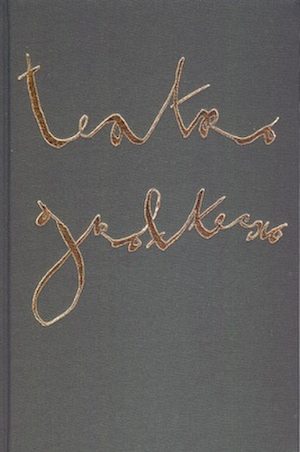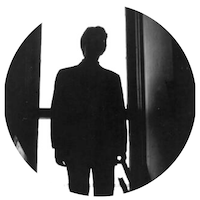Thomas Ligotti
Thomas Ligotti
(Geb. 1953 in Detroit, MI)
Mit der Erzählsammlung Teatro Grottesco (2008) sichert sich der US-amerikanische Schriftsteller Thomas Ligotti einen besonderen Platz unter den literarischen Antworten auf Thomas Bernhard, als bislang einzige aus dem Horrorgenre. Als virtuoser Stilist mit H. P. Lovecraft und Edgar Allan Poe verglichen, zählt Ligotti zu den meistbeachteten zeitgenössischen Autor:innen des Genres, dessen Grenzen er sowohl in Richtung Phantastik als auch ›weird fiction‹ ausweitet. Seine Texte fanden rasch über kleine Auflagen in Fanzines und Anthologien hinaus Anklang und brachten ihm seither zahlreiche Preise ein, darunter drei Bram Stoker Awards, einen British Fantasy Award und einen International Horror Guild Award. Für Aufmerksamkeit sorgte zuletzt seine philosophische Essaysammlung The Conspiracy Against the Human Race (2010), in der Ligotti seinen u. a. an Emil Cioran geschulten antinatalistischen Pessimismus sowohl aus philosophischer als auch aus literarischer Sicht darlegt. Er lebt heute in Südflorida.
»I’ve always been a shameless imitator of other writers’ styles, and the Teatro Grottesco stories are my Bernhard stories«, so Thomas Ligotti in aller Deutlichkeit (Ligotti 2005). Neben Edgar Allan Poe, Bruno Schulz, Vladimir Nabokov und Franz Kafka, die er ebenso zu seinen Vorbildern zählt, schätzt Ligotti Schreibende, in deren Werk er »plenty of things about both my life in particular and life in general as I have experienced and thought of it« findet, darunter Jorge Luis Borges und Thomas Bernhard: »I can take an interest in the writing of these authors because they seem to have felt and thought as I have.« (Ligotti 2006) Sein Interesse rühre aber nicht nur von dieser Übereinstimmung von Gefühltem und Gedachtem, die in einer verwandten thematischen Präferenz für Atemnot, Krankheiten, Studienscheitern und vernichtenden Allaussagen über Land und Leute mündet:
Bernhard’s fiction is captivating for two reasons. First, he uses repetition. Along with metaphor, repetition is the true mark of the literary. It’s also inherently funny. (…) Second, repetition in Bernhard, unlike in Stein or any other author I can recall, heightens the expression of his intense rage and the creation of his persona as sort of a literary madman. From book to book, Bernhard harps on a particular set of hatreds, including the malign stupidity of doctors, the malign stupidity of the Catholic Church, the malign stupidity of the Austrian government, the malign stupidity of the Austrian people as stand-ins for people everywhere, and the malign stupidity of life itself.
Thomas Ligotti: »Literature Is Entertainment or It Is Nothing«, Interview mit Neddal Ayad, in: Fantastic Metropolis, 31. Oktober 2004.
Ligottis Bernhard-Lektüren schlagen sich in Teatro Grottesco weniger im Inhalt der Kurzgeschichten nieder als in der Wahl der Stilmittel. Er habe eine Vorliebe für »fiction that is extremely unfiction-like«, etwa die »novel-like rants of Bernhard« (Ligotti 2005), und so ähneln manche seiner Erzählungen eher Traktaten als narrativen Texten, was sie in ihrer formalen Gestaltung in die Nähe von Bernhards Prosa rückt. Während die Bezugnahme auf konkrete Passagen aus Bernhards Werk in Teatro Grottesco eher der Ausnahmefall ist, greifen Ligottis Geschichten verschiedene sprachliche Aspekte von Bernhards Schreiben auf: Figuren verlieren sich monologisierend in Denkspiralen oder Schimpftiraden, ihre Urteile sind häufig apodiktisch und von übertriebener Vehemenz. Die für die englische Sprache überdurchschnittlich langen Sätze, Kursivierungen zur Emphase, indirekte Rede mit Inquit-Formeln und das »naturgemäß«-Signalwort »naturally« lassen beispielsweise die Erzählung »Gas Station Carnivals« wie eine Hommage an Bernhard erscheinen. Im Zentrum stehen die Erinnerungen der Figur Quisser an die titelgebenden fahrenden Zirkusse auf entlegenen Tankstellen:
Along the way, naturally, they [Quisser and his parents] would need to stop at any number of gas stations that were located in towns and cities, as well as those that they came upon in more isolated, rural locales. These were the places, Quisser said, where one was most likely to discover those hybrid enterprises which he called gas station carnivals. Quisser did not claim to know when or how these specialized carnivals, or perhaps specialized gas stations, came into existence, nor how widespread they might have been. His father, whom Quisser believed would be able to answer such questions, had died some years ago, while his mother was no longer mentally competent, having suffered a series of psychic catastrophes not long after the death of Quisser’s father.
Thomas Ligotti: »Gas Station Carnivals«, in: Teatro Grottesco, London: Virgin Books 2008, S. 182-201; hier S. 186.

Den Leser:innen bereits bekannte Informationen, Äußerungen und Beweggründe kehren wieder und wieder, Beschreibungen von Figuren, Gegenständen oder Orten in Teatro Grottesco wiederholen sich bis zur Mantrahaftigkeit. Durch die kreisenden Bewegungen der Prosa entsteht ein Déjà-Vu-Leseerlebnis, das zur mysteriösen, beklemmenden Atmosphäre der Sammlung noch beiträgt. Bernhards »repetitive, manic style« (Ligotti 2016), der besonders Ligottis spätere Fiktion geprägt habe, entfaltet hier seine volle Wirkung.
In der Kurzgeschichte »The Clown Puppet« ist es der inflationäre Gebrauch des Schlüsselworts »nonsense«, der eine ironische Komik à la Bernhard entstehen lässt: »It has always seemed to me that my existence consisted purely and exclusively of nothing but the most outrageous nonsense.« (Ligotti 2008: 53) Der Ich-Erzähler, der mit dieser Radikalaussage die Geschichte einleitet, befindet sich in einem Arbeitsverhältnis, das dem des Ichs in Der Keller. Eine Entziehung ähnelt. In diesem zweiten Band der fünfteiligen Autobiographie beschreibt Bernhard seine Lehrzeit beim Lebensmittelhändler Podlaha in dessen kleinem Kellergeschäft in der Salzburger Scherzhauserfeldsiedlung. »Der Zufall, wenn es den Zufall gibt, hatte zwei Menschen, den Podlaha und mich, zusammengeführt, die sich bis in kleinste Einzelheiten ihres Charakters hinein ähnlich waren. Das Wesen des Podlaha war ein mir nahe verwandtes, und unser beider Existenz war in entscheidenden Merkmalen parallel.« (W10: 148) Ligottis Ich-Erzähler, der unter der Aufsicht eines gewissen Mr Vizniak in dessen kleiner Apotheke in einer Seitengasse eines heruntergekommenen Stadtteils arbeitet, kommt zu einer ähnlichen Einschätzung: »[T]here existed, in fact, a peculiar sympathy between the old man and myself« (Ligotti 2008: 54). Während eines Spätdiensts schildert der Erzähler seinen Blick aus dem Fenster der Apotheke auf die Metzgerei gegenüber:
These pale neon letters remained lit throughout the night in the window of the meat store, spelling out three words: beef, pork, goat. Sometimes I would stare at these words and contemplate them until my head became so full of meat nonsense, of beef and pork and goat nonsense, that I had to turn away and find something to occupy myself in the back room of the medicine shop, where there were no windows and thus no possibility of meat-store visions. But once I was in the back room I would become preoccupied with all the medicines which were stored there, all the bottles and jars and boxes upon boxes stacked from floor to ceiling in an extremely cramped area. I had learned quite a bit about these medicines from Mr Vizniak, although I did not have a license to prepare and dispense them to customers without his supervision. I knew which medicines could be used to most easily cause death in someone who had ingested them in the proper amount and proper manner. Thus, whenever I went into the back room to relieve my mind from the meat nonsense brought on by excessive contemplation of the beef-pork-and-goat store, I almost immediately became preoccupied with fatal medicines; in other words, I would then become obsessed with death nonsense, which is one of the worst and most outrageous forms of all nonsense.
Thomas Ligotti: »The Clown Puppet«, in: Teatro Grottesco, S. 53-64; hier S. 54f.
Zwar folge Ligotti beim Schreiben seinem eigenen Tonfall, doch »emulating the style of another writer, such as Bruno Schulz or Thomas Bernhard« (Ligotti 2006) habe geholfen, »the ideas and moods I wished to convey in my work« zu transportieren. Nicht immer geschehe diese Anverwandlung bewusst: »It’s something that became incorporated into my style at some point rather than appropriated in a conscious manner. The process is very much like that of a musician whose compositions or style of improvisation assimilates qualities of other musicians and musical trends.« (Ligotti 2016) Frei von allen Originalitätsdünkeln sieht der Autor keinen Grund, literarisches Diebesgut zu verbergen, stellt es vielmehr zur Schau und noch viel mehr in Aussicht: »These literary thieveries are really just the tip of the iceberg concerning what I’ve taken from other writers. Any time I’ve come across a work of fiction I wish I had written, I’ll do my best to write something as close to it as possible. Fretting about being a stylistic original is a waste of time in my opinion.« (VanderMeer 2013)
Lisa Akhila Plakolm, 21. Juni 2022.
Literaturverzeichnis
Bernhard, Thomas: Die Autobiographie [= Werke 10], hg. von Martin Huber und Manfred Mittermayer. Frankfurt am Main: Suhrkamp 2004.
Ford, Phil, und J. F. Martel: »Thomas Ligotti’s Angel«. In: Weird Studies, Ep. 46, 8. Mai 2019.
Hernández Roura, Sergio Armando: »Thomas Ligotti. Los delirios de una mente rota«. In: Brumal. Revista de Investigación sobre lo Fantástico / Research Journal on the Fantastic 1 (Frühjahr 2013). S. 135-156.
Ligotti, Thomas: »Literature Is Entertainment or It Is Nothing«, Interview mit Neddal Ayad. In: Fantastic Metropolis, 31. Oktober 2004.
Ligotti, Thomas: »It’s All a Matter of Personal Pathology«, Interview mit Matt Cardin. In: The Teeming Brain. [Zuerst in: The New York Review of Science Fiction Iss. 218, Jg. 19 (2006), Nr. 2.]
Ligotti, Thomas: »Interview with Thomas Ligotti«, Interview mit Luca Fusari. In: TLO [Thomas Ligotti Online], 9. Juni 2016. [Zuerst: »Intervista a Thomas Ligotti«. In: Prismo, 6. Juni 2016.]
Ligotti, Thomas: Teatro Grottesco. London: Virgin 2008.
Ligotti, Thomas: »Triangulating the Daemon«, Interview mit R. F. Paul und Keith Schurholz. In: TLO, 30. Jänner 2005. [Zuerst in: Esoterra 8 (Winter/Frühling 1999). S. 14-21.]
VanderMeer, Jeff: »Wonderbook Interview with Thomas Ligotti«. In: wonderbooknow.com, 2013.

